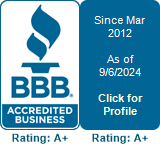PREP STEPS FOR COURT CASES
- Gather the Notice of Deficiency or other Court document.
- Gather your tax return, if you have it.
- Collect the IRS audit papers, if you have them.
- Collect any IRS notices you have.
- Contact Mr. Hopkins in Colorado Springs, Pueblo or Denver and set an appointment.
- Bring all documents to the TaxHelpLaw Consultation. See you there!
No Court
If a Notice of Deficiency is the first notice you have ever received from the IRS and you have not filed returns, we may be able to resolve your immediate problem with simple return filings. This starts a new, different series of IRS procedures against you.
The Notice may contain the documents upon which the IRS relies to issue this determination that you owe. If not, you can call the IRS at 1-800-829-1040 to order your "Wage & Income Transcripts", which will list all 3rd party forms filed on your IRS account so you can compare them with your records.
You will use these documents to prepare your returns. Please see the Unfiled Returns Prep Steps for more information, forms & instructions.
Also, if you will be filing bankruptcy Tax Court may not be available. (See Notice 1421)
Tax Court Cases
But usually, when the IRS issues a Notice of Deficiency they are alleging that you failed to agree to a Form 4549 and you owe the tax. A tax attorney or you must petition Tax Court within ninety days of the mailing date to avoid default.
Before the end of the 90 days the IRS can't assess the tax so you have no danger of a levy - yet. After the 90 days with no petition in Tax Court, the IRS will make a prompt assessment and start the collection process.
A huge mistake people often make when they receive the Notice of Deficiency is to contact the IRS or the Taxpayer Advocate. In fact, the Notice of Deficiency is misleading when it invites you to contact the IRS with questions. They may even include a pre-addressed envelope for you to mail them a response!
Do not contact the IRS - they have no ability or power to reverse their determination. They will intentionally allow the 90 days to expire and you lose the case!! The only place you can go for relief is to Tax Court.
The IRS always asks you to sign and agree that you owe them money. See Form 4089-B. Please do not sign this document unless you get legal advice! We rarely agree to this.
To file a case in Tax Court requires a $60.00 filing fee & 1) a Petition & 2) Designation for Place of Trial. See Petition Kit.
The IRS is allowed 60 days before they must answer your petition. Then, most cases are transferred to IRS Appeals to attempt to settle prior to trial.
If you go to Tax Court, you must have your records & evidence completely in order or you will lose. You can hire a bookkeeper, CPA, or us to arrange your records. But, you can do it faster because you understand your business, if you get some guidance. The TaxHelpLaw.com website shows you what to do!
Lost Documents
Enduring an IRS audit may be worse if you didn't keep your records or your records are lost or unavailable. However, unless you only used cash, bank records & credit card records can be re-created. Also, even if cash was used, affidavits can be obtained or we can use industry standards to arrive at a reasonable figure. See Lost Documents.
In any case with a Court, you may represent yourself but you should at least ask a tax lawyer for advice before and during the Court process. You must follow the Court Rules to preserve your rights. But, if you prepare with the tax attorney, Court is often a better option for winning against the IRS.
In Court cases, the tax lawyer and the judge can assure that the IRS treats you fairly because of your Due Process rights.
If you have allowed the 90 days to expire and did not petition Tax Court, you did lose a valuable opportunity but there are two other options: file for an Audit Reconsideration or pay the tax & file a Claim for Refund or 1040X. Both of these options have more cost and adversity than Tax Court.
Other Federal Courts
US District Court & the Court of Claims handle other Court cases. But, in these Courts, you usually must pay some or all of the tax before you can sue. Plus, you must first present and pursue your case within the IRS agency before being allowed to go to Court. And, you can't bring up claims in Court which weren't presented first to the IRS.
But, these Courts have Article III Equitable powers over the IRS & can fairly & fully hear your case. The Tax Court is an Article I tribunal & has no Equitable powers.
At any time you may contact Mr. Hopkins at TaxHelpLaw for attorney guidance!
Let us prepare an Action Plan for you that's specific to your needs & circumstances.






